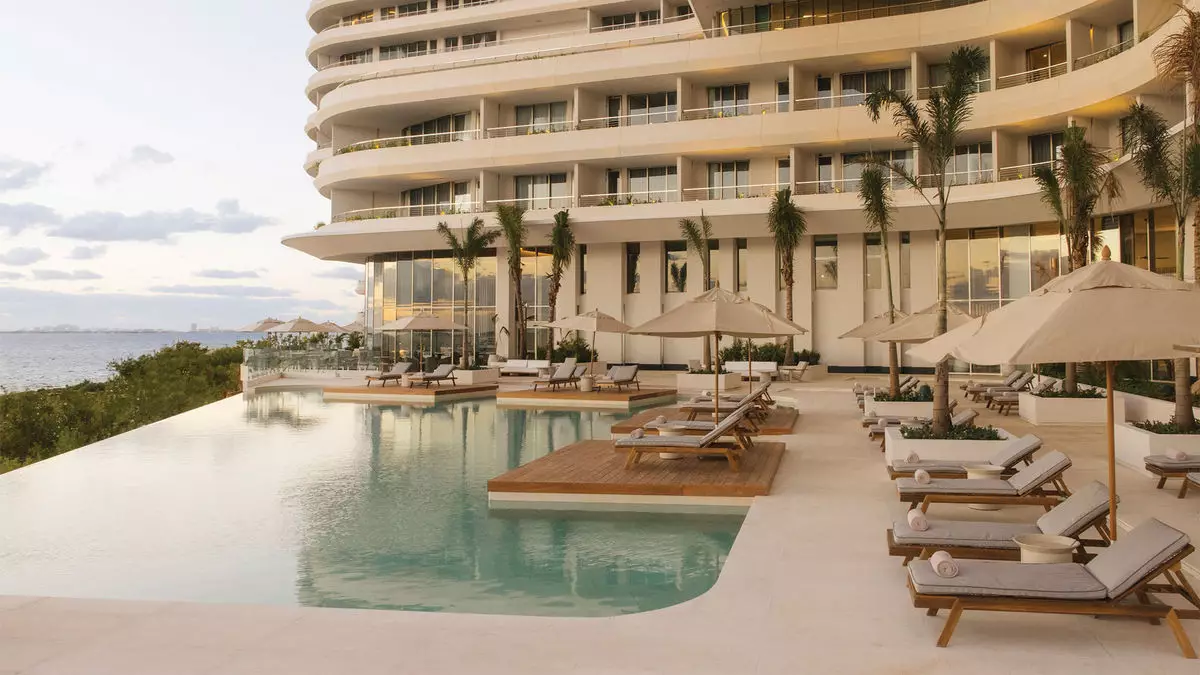As globalization evolves, so too is the luxury hospitality industry, particularly in its pursuit of wellness and longevity. In an era marked by an increasing population of health-conscious, affluent individuals, resorts and spas are sprouting up to fulfill a growing appetite for innovative wellness treatments aimed at prolonging life. This escalating competition within the luxury sector signifies not just an expansion of service offerings but also encapsulates a profound cultural shift regarding health and well-being.
The notion of wellness has significantly morphed over the years, transitioning into a key luxury market segment. According to recent analyses, medical wellness clinics emerge as one of the fastest-growing categories within this sector as affluent clientele prioritize longevity and healthspan — the period of life spent in good health. Beth McGroarty, research director at the Global Wellness Institute, highlighted this shift, noting that individuals are increasingly seeking ways to ensure not only longevity but a quality of life that differs dramatically from that of previous generations.
One major driver of this trend is the disillusionment with conventional healthcare systems which often emphasize treatment rather than preventative measures. The affluent population is now attracted to integrated medical-wellness facilities that promise more proactive approaches to health maintenance. With treatments that command exorbitant prices, the appeal lies in their luxury and exclusivity. Where traditional luxury spas might charge around $500 for a session, these specialized wellness treatments can exceed $25,000.
Examples of these extravagant offerings reveal both the potential and the risks involved. Take the Four Seasons Resort Maui at Wailea, which has partnered with Next Health, a medical longevity company. The resort now features treatments like a $12,000 stem cell therapy, highlighting how resorts are creatively intertwining luxury with advanced medical interventions. Price tags for wellness packages can escalate further, as illustrated by a comprehensive four-session longevity protocol priced at an astonishing $44,000.
This escalating pricing reflects a broader economic trend; the richest segments of society have seen significant financial increases in recent years, particularly during and after the COVID-19 pandemic. With the rise in wealth, demand for top-tier wellness experiences is surging. Luxury resorts recognize this dynamic and are racing to offer a plethora of services aimed at the health-conscious elite.
The competitive nature of this burgeoning market is evident as established luxury brands pivot towards wellness. SBE, a prominent player in the industry, recently introduced The Estate, a new hotel-brand concept in collaboration with life coach Tony Robbins. The Estate promises a groundbreaking approach to preventive medicine, with ambitions to open numerous hotels and urban wellness centers by 2030. This venture underscores a relentless push by brands to capitalize on the wellness market, ensuring they capture consumer interest and loyalty amidst increasing options.
Other established names like Canyon Ranch and Six Senses are also in the game. For instance, Canyon Ranch has rolled out Longevity8, a comprehensive diagnostic program that costs around $20,000 per guest, catering to the need for thorough health assessments and personalized follow-ups. Meanwhile, Six Senses is deepening its dive into medical wellness through concepts like its RoseBar at the Ibiza location, illustrating the blending of traditional holistic practices with medical advancements.
Despite the prosperous expansion in the wellness sector, notable challenges arise. The saturation of the wellness market, as brands attempt to claim their space, could lead to confusion among potential clients regarding what “longevity” truly encapsulates. McGroarty raises a critical point, suggesting that terms like “wellness” and “longevity” may become diluted, losing their significance as they become overly commercialized.
The concern over clarity in messaging is compounded by the intricacies of consumer expectations. With the elite demographic increasingly bombarded with options, determining which offerings truly make a tangible impact on health can create paradoxes in consumer choice.
As the luxury hospitality sector continues to evolve, the dialogue surrounding longevity will only become more pronounced. The juxtaposition of wealth, health, and the quest for a better quality of life presents an invaluable opportunity for innovation and service differentiation. While existing brands rush to define and market their offerings, the conversation about what genuine wellness entails must remain at the forefront. As society navigates this evolving landscape, the definition of luxury may very well hinge on the balance between indulgence and health, shaping the future of hospitality for years to come.


Leave a Reply